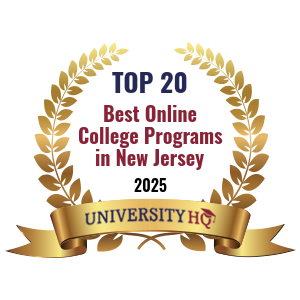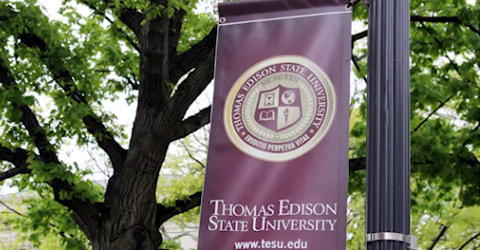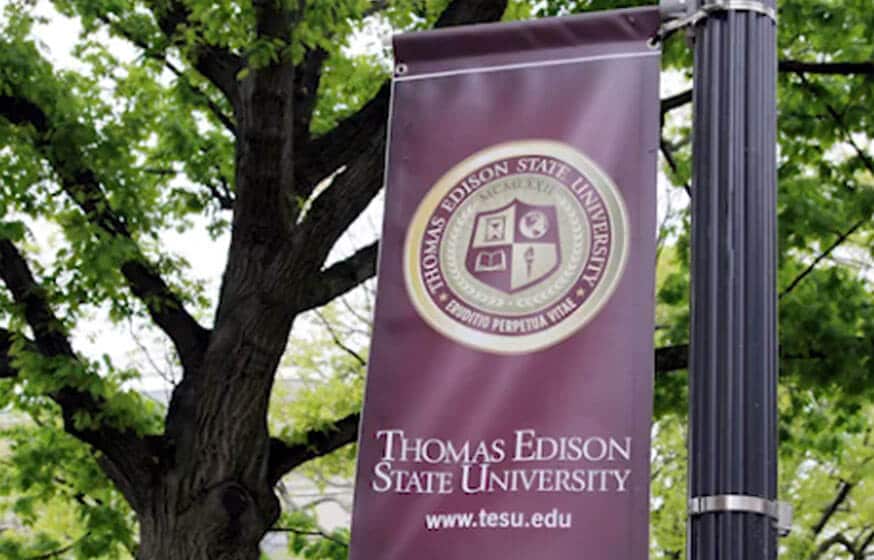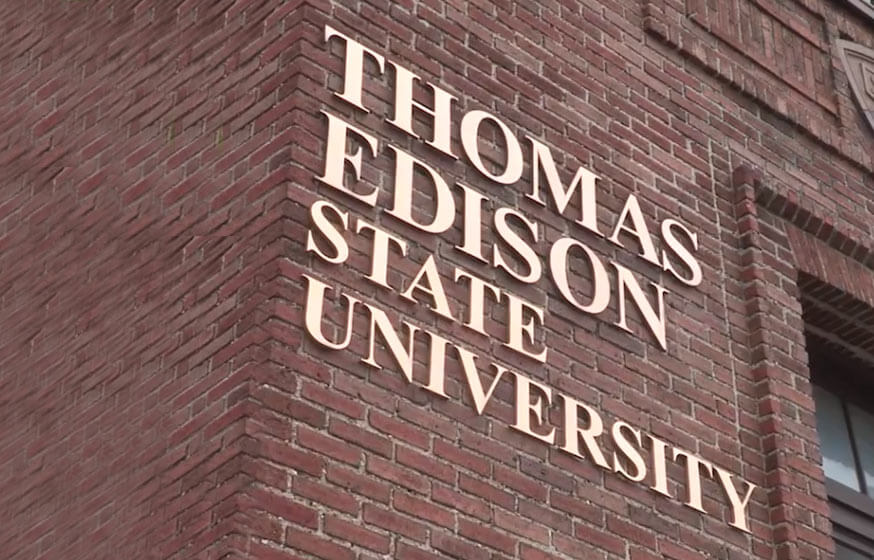Get Matched With Online Colleges
Thomas Edison State University is a four-year public university located in Trenton, New Jersey. It has a student population of over 10,000 and all students live off campus because there is no on-campus housing. The school offers programs with awards including certificates up to and including doctorate level degrees.
Search All Programs
Overview of Thomas Edison State University
Students can choose from a variety of programs in business, healthcare and other sciences, the humanities, and education. Students can expect to experience all four seasons, with winters on the cold and snowy side and summers on the hot and humid side. Trenton offers students the chance to shop, spend time at the beach, and is not too far from New York City. The school offers online programs for most of its majors, either with the ability to complete an entire degree online or a hybrid of distance learning/online courses and traditional on-campus courses. Students should check with advisors at the school to find out if their program of interest has a distance learning option if that is what they’re looking for.
General Information
| School Type | Public |
|---|---|
| Campus Setting | City: Small |
| Campus Housing | No |
| Student Faculty Ratio | 15:1 |
| Graduation Rate | NA |
| Year Founded | 1972 |
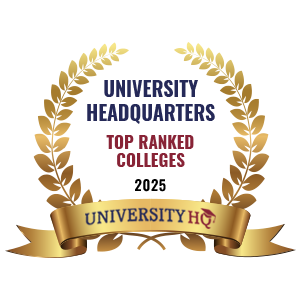
Student Enrollment
Total Students10,227
9,544
683
Undergraduate Student
Male 5,631
Female 3,913
Graduate Student
Male 403
Female 280
Explore Map
Top Rankings For Thomas Edison State University
Admissions
APPLICATIONSNA
ACCEPTANCENA
Acceptance RateNA
Enrollment NA
| Admissions | |
|---|---|
| Application Fee | $50 |
| High School GPA | NA |
| High School Rank | NA |
| High School Transcripts | NA |
| College Prep Courses | NA |
| Recommendations | NA |
| SAT/ACT | NA |
| TOEFL (Test of English as a Foreign Language) | NA |
| Application Deadline | Rolling |
| Common Application Accepted | No |
Tuition Cost & Financial Aid
Annual tuition for undergraduates is $8,000 for in-state students and $10,000 for out-of-state students. Those enrolled in a graduate program will pay closer to $12,000 per year. The amount a student will have to pay after financial aid is applied depends on the amount of financial aid a student receives, which is often based on the family’s income, but many students who qualify for financial aid can have a significant amount of the cost covered by grants and student loans. The majority of the costs that aren’t covered are living expenses, and those depend on where a student lives. For example, a student living at home with family will have less expenses than a student who is living independently. The amount a student has to pay out-of-pocket can also be lowered by the use of scholarships. These are available at both the undergraduate and graduate level, so interested students should look at this option to search for scholarships that might be available to them.
| Average net price | 2018-2019 |
|---|---|
| Net Price | NA |
| Average Total Aid | $3,450 |
| Students Receiving Financial Aid | NA |
| Room & Board | $5,103 |
Sticker Price
- Tuition In-State - $7,926
- Tuition Out-of-State - $9,856
- Books and Supplies - $1,700
- Room & Board - $5,103
- Other - $567
Academics
The student-to-faculty ratio at Thomas Edison State University is 15 to 1. These are relatively small classes, which mean there is plenty of opportunity for faculty and student interaction. For students who might need extra help, or just prefer smaller class sizes, this is ideal, but it also means that there is less of a chance that a student can just blend in. Since classes are small, participation in class discussions will generally involve everyone, so for those who just want to go to class and not participate, this could be a hindrance.
The five most popular degree types offered at the school are multidisciplinary studies, liberal arts and sciences, business and marketing management, health professions, and homeland security or law enforcement. Specifically, this includes biological and physical sciences, accounting, human resources management, registered nursing, etc.
Retention
Rate
4 year
Graduation
Rate
6 year
Graduation
Rate
Student Population Total
Student Population 10,227
9,544
683
Most Popular Programs & Majors
(# of Diplomas Awarded by Subject)
| Multi/Interdisciplinary Studies | 544 Total Graduates / 28% |
|---|---|
| Multi-/Interdisciplinary Studies, Other | 435 Graduates |
| Biological and Physical Sciences | 109 Graduates |
| Liberal Arts and Sciences, General Studies and Humanities | 501 Total Graduates / 26% |
| Liberal Arts and Sciences/Liberal Studies | 369 Graduates |
| Humanities/Humanistic Studies | 132 Graduates |
| All Business Majors | 319 Total Graduates / 17% |
| Business Administration and Management, General | 176 Graduates |
| Accounting | 44 Graduates |
| Human Resources Management/Personnel Administration, General | 30 Graduates |
| Finance, General | 23 Graduates |
| Health Professions and Related Programs | 313 Total Graduates / 16% |
| Registered Nursing/Registered Nurse | 252 Graduates |
| Health Professions and Related Clinical Sciences, Other | 50 Graduates |
| Allied Health Diagnostic, Intervention, and Treatment Professions, Other | 8 Graduates |
| Health Information/Medical Records Administration/Administrator | 3 Graduates |
| Homeland Security, Law Enforcement, Firefighting and Related Protective Services | 44 Total Graduates / 2% |
| Homeland Security, Law Enforcement, Firefighting and Related Protective Services, Other | 44 Graduates |
| All Other Diplomas | 10% |
Outcome & Salary
Students who receive financial aid in the form of grants are more likely to graduate than those who use other means to pay for their education. The most successful students are those enrolled in bachelor’s degree programs. Anyone considering attending Thomas Edison State University, or any college, should sit down with a school administrator and see all the facts before deciding to attend the school.
However, there are some useful statistics to consider when you think about attending this school. While this might not be indicative of every student’s experience, the average graduate of TESU earns an average, early-career salary of $48,200. By the time they reach the mid-point of their career, this average increases to $70,100.
If you consider those numbers then, the average 10-year earning potential of gaining a degree from this school is $737,960 and the 20-year earning potential is $1,438,960. With an average educational cost of about $65,000 for a full four years, that puts your return on investment (ROI) at about $673,000 in ten years and around $1,374,000 in twenty years.
| Graduates Salary | |
|---|---|
| College Grads Early Career Salary | $48,200 |
| College Grads Average Salary | $73,796 |
| College Grads Mid Career Salary | $70,100 |
| Return on Investment (ROI) | |
|---|---|
| 10 Year Salary Earnings Potential | $737,960 |
| 20 Year Salary Earnings Potential | $1,438,960 |
| Cost of Education (Net Price) 4 Year | NA |
| 10 Year Projected ROI | NA |
| 20 Year Projected ROI | NA |
| No College Education Salary Comparison | |
|---|---|
| National Average Salary | $38,792 |
| 10 Year Projected Income | $387,920 |
| 20 Year Projected Income | $775,840 |
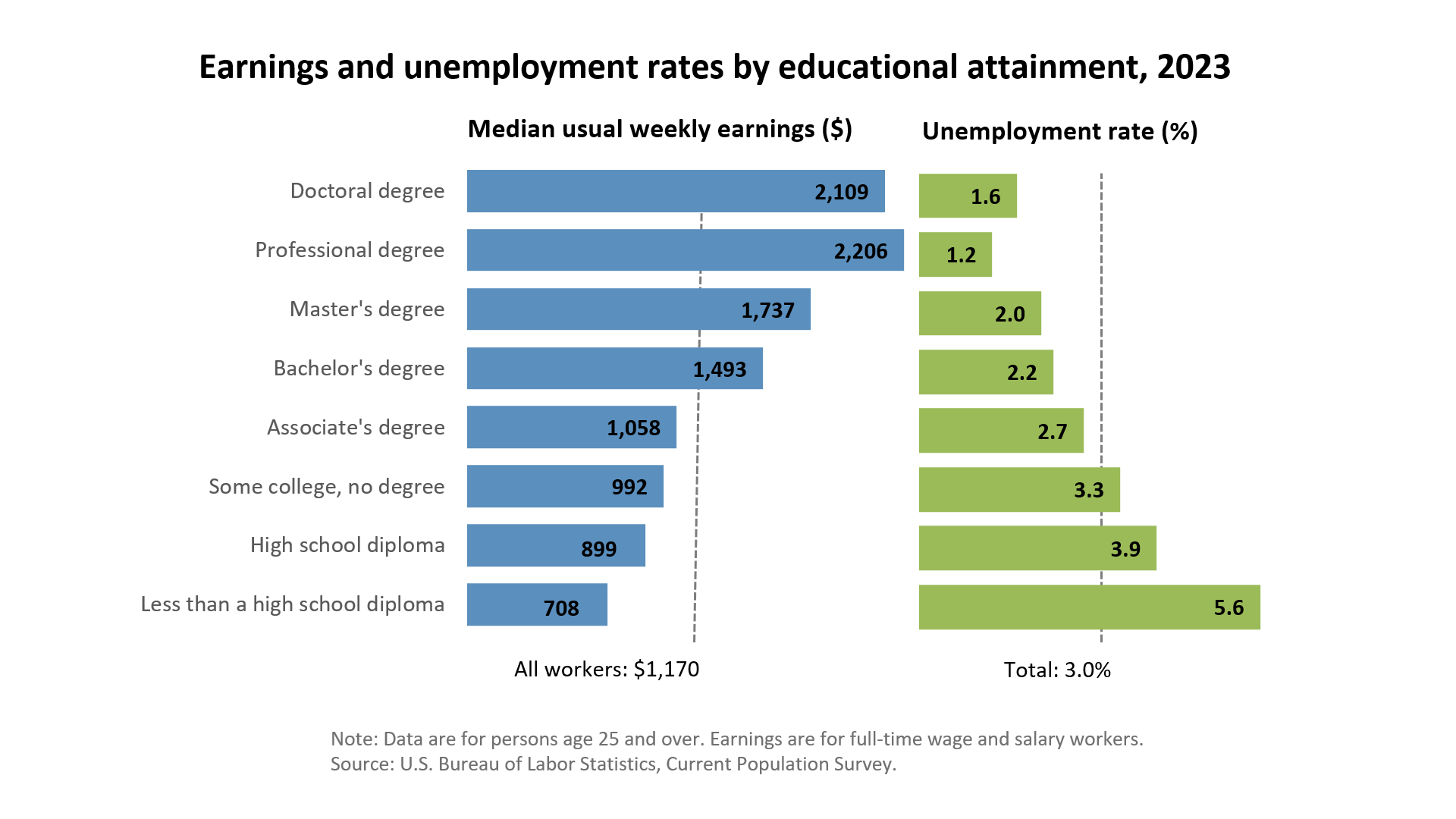
Related Top College Resources



